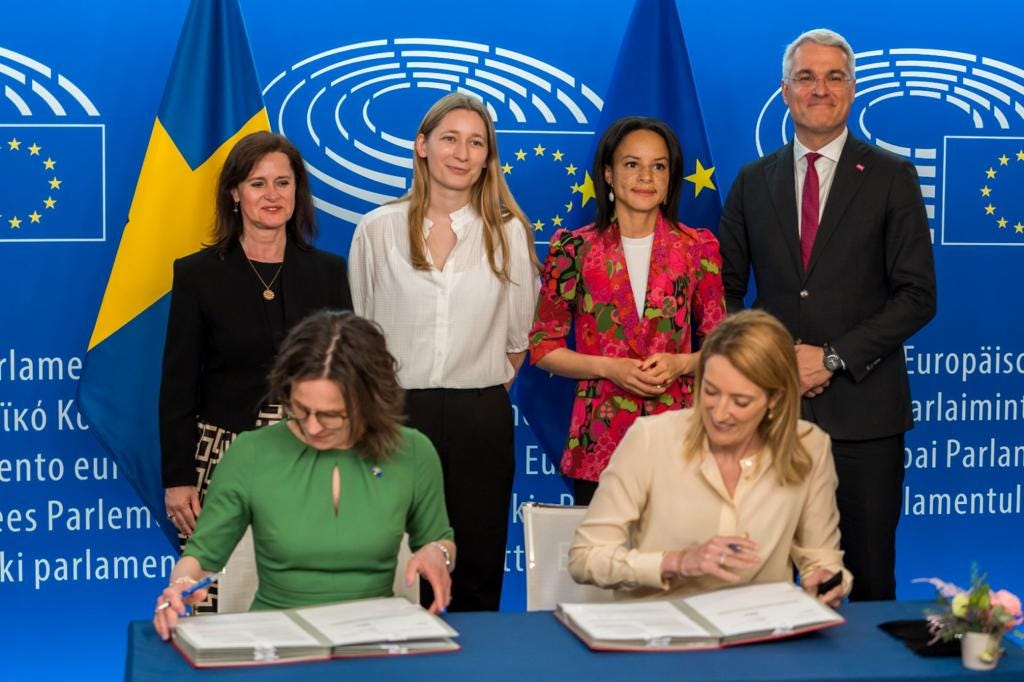HRC Meets to Discuss Progress on the Right to Development | UNICEF: Learning Passport Yields Results | European Parliament: Emotion in Facial Recognition Banned in the EU
WHO: Youth Road Safety | IPU: Case Studies from Brazil | WTO: Electronic Commerce
It is short week in Europe and the agenda at the UN in Geneva reflects that.
Week in Review
European Parliament: Equal Pay for Equal Work bill signed into law, May 10.
European Parliament
Artificial Intelligence Act
Artificial Intelligence has dominated the airwaves, social media, and wherever one turns to read the news there is talk of its perils. More than before, and this is a good thing as the hype has overshadowed the real concerns for democracy, up till now.
Will we, as a society, be able to regulate it?
Will industry and regulators find common ground?
I interviewed Dr. Gianclaudio Malgieri, Associate Professor of Law at Leiden University School of Law, author of Vulnerability & Data Protection Law, Oxford University Press, to speak about the advances on the draft of the Artificial Intelligence Act, that was discussed at the European Parliament early May.


